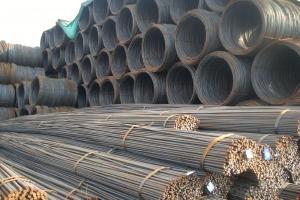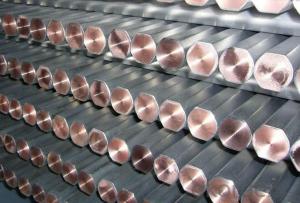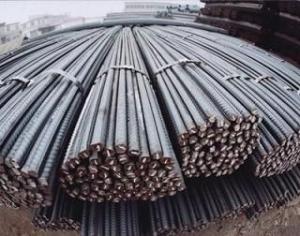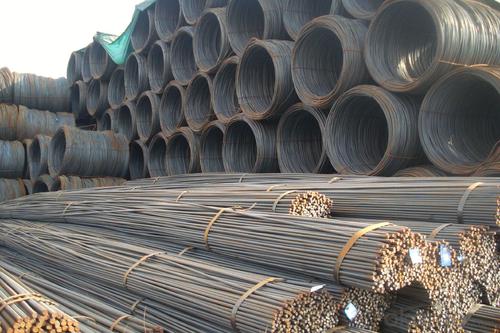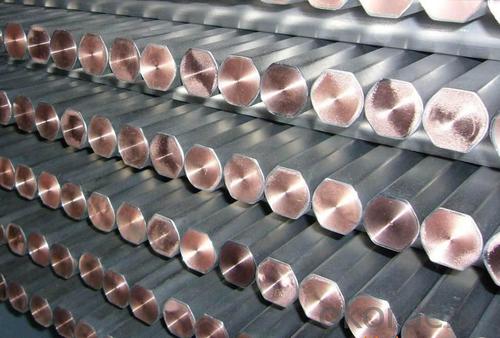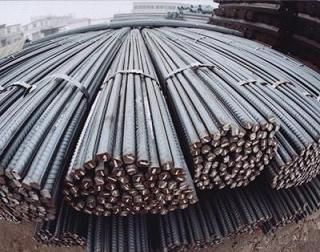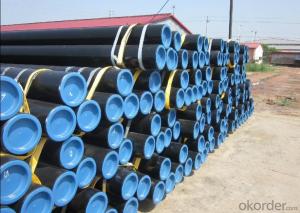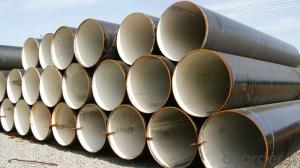Steels Manufacture Building Material Construction with Good Quality on Sale
- Loading Port:
- Tianjin
- Payment Terms:
- TT OR LC
- Min Order Qty:
- 100 m.t
- Supply Capability:
- 1000 m.t/month
OKorder Service Pledge
OKorder Financial Service
You Might Also Like
1.Packaging & Delivery
Packaging Detail: | in bundles or as customer's requirement |
Delivery Detail: | Within 30days after receiving your deposit or copy of L/C |
2.Specifications
HRB400,HRB500 Steel Rebars
1.China direct supplier
2.Best service
3.Competitive price
4.Quantity assured
3.Product Description
Name | High Tensile Export Reinforcing Steel Bar ,Deformed Steel Bar ,HRB400B,HRB,46B,HRB500 Building Construction Material |
Standard | ASTM A615 /BS BS 4449 /GB HRB/ JIS G3112 |
Grade | A615 Gr40/60/75 BS 4449 Gr460,B500 GB HRB335,HRB400 ,HRB500
JIS G3112 SD390
|
Diameter | 6mm-40mm |
Length | 6-12m |
Technique | Low temperature hot-rolling reinforcing deformed steel rebar |
Tolerance | As the standard or as your requirement |
Application | Building, construction, road, bridge,etc |
Certificated | BV |
MOQ | 500tons per size steel rebar |
Packing details | Steel rebar packed in bundle or as your requirement |
Delivery | Within 30 days after deposit |
Payment | T/T or L/C |
4.Chemical Composition
Grade | Technical data of the original chemical composition (%) | |||||||
C | Mn | Si | S | P | V | |||
HRB400 | ≤0.25 | ≤1.60 | ≤0.80 | ≤0.045 | ≤0.045 | 0.04-0.12 | ||
Physics capability | ||||||||
Yield Strength(N/cm2) | Tensile Strength(N/cm2) | Elongation (%)
| ||||||
≥400 | ≥470 | ≥14 | ||||||
Grade | Technical data of the original chemical composition (%) | |||||||
C | Mn | Si | S | P | V | |||
HRB500 | ≤0.25 | ≤1.60 | ≤0.80 | ≤0.045 | ≤0.045 | 0.04-0.12 | ||
Physics capability | ||||||||
≥500 | ≥630 | ≥12 | ||||||
5. Theorectical weight
Diameter (MM) | Cross Sectional Area (MM2) | Theorectical Weight (KG/M) | Weight of 12M Bar (KG) | A Ton Contains 12M Bars (PCS) |
6 | 28.27 | 0.222 | 2.664 | 375.38 |
8 | 50.27 | 0.395 | 4.74 | 210.97 |
10 | 78.54 | 0.617 | 7.404 | 135.06 |
12 | 113.1 | 0.888 | 10.656 | 93.84 |
14 | 153.9 | 1.21 | 14.52 | 68.87 |
16 | 201.1 | 1.58 | 18.96 | 52.74 |
18 | 254.5 | 2 | 24 | 41.67 |
20 | 314.2 | 2.47 | 29.64 | 33.74 |
22 | 380.1 | 2.98 | 35.76 | 27.96 |
25 | 490.9 | 3.85 | 46.2 | 21.65 |
28 | 615.8 | 4.83 | 57.96 | 17.25 |
32 | 804.2 | 6.31 | 75.72 | 13.21 |
36 | 1018 | 7.99 | 98.88 | 10.43 |
40 | 1257 | 9.87 | 118.44 | 8.44 |
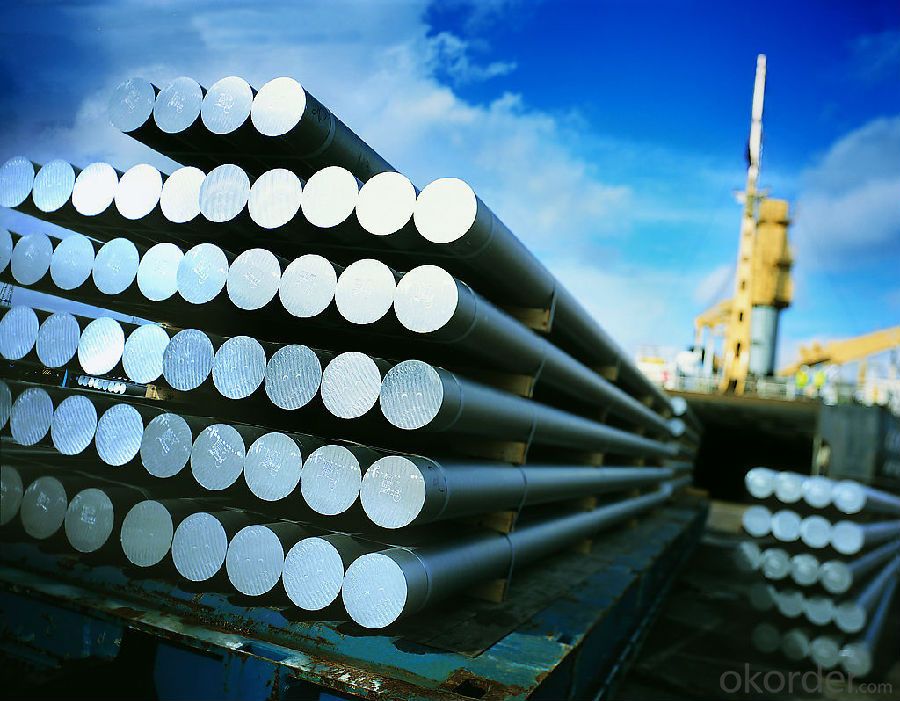
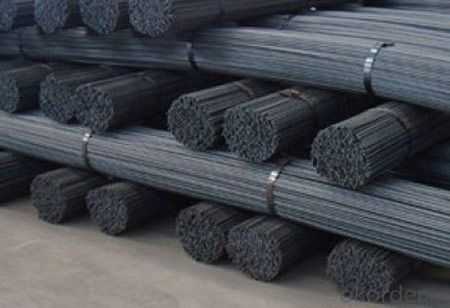
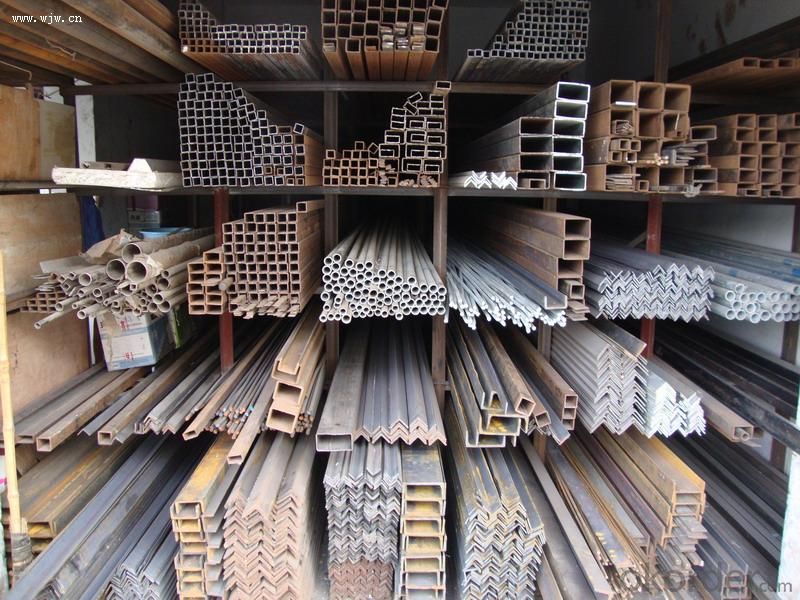
- Q: How are steel pipes tested for strength and durability?
- Steel pipes are tested for strength and durability through various methods such as hydrostatic testing, non-destructive testing, and mechanical testing. Hydrostatic testing involves pressurizing the pipe with water to check for any leaks or weaknesses. Non-destructive testing techniques like ultrasonic or magnetic particle testing are used to detect any flaws or defects within the pipe. Mechanical testing involves subjecting the pipe to various loads and stresses to assess its performance and resistance to deformation. These tests ensure that steel pipes meet the required standards and are capable of withstanding the intended applications.
- Q: What is the difference between steel pipes and PEX pipes?
- Steel pipes are made of metal and are known for their durability and strength. They are commonly used in industrial applications and for transporting fluids and gases. On the other hand, PEX pipes are made of a flexible plastic material called cross-linked polyethylene. PEX pipes are more flexible and easier to install compared to steel pipes. They are commonly used in residential plumbing systems due to their resistance to corrosion and ability to expand and contract with temperature changes.
- Q: Can steel pipes be used for underground pressure pipelines?
- Yes, steel pipes can be used for underground pressure pipelines. Steel pipes are known for their strength and durability, making them suitable for various applications, including underground pressure pipelines. They can withstand high pressure and are resistant to corrosion, making them a reliable choice for transporting fluids or gases underground. Additionally, steel pipes are available in different sizes and thicknesses, allowing for customization based on the specific requirements of the pipeline project. However, it is important to ensure proper coating or lining of the steel pipes to prevent corrosion caused by soil conditions or the transported substance. Regular maintenance and inspections are also necessary to ensure the integrity and longevity of the underground pressure pipelines made of steel pipes.
- Q: Can steel pipes be used for oil refinery applications?
- Yes, steel pipes can be used for oil refinery applications. Steel pipes offer many advantages for oil refinery applications including high strength, durability, and resistance to corrosion. They are able to withstand high pressure and temperature conditions that are common in oil refinery operations. Steel pipes are also easy to transport and install, making them a popular choice for oil refinery projects. Additionally, steel pipes can be customized to meet specific requirements such as size, thickness, and coating, making them suitable for a wide range of oil refinery applications.
- Q: What quota should be installed for heating seamless steel pipe?
- Installation quota of seamless steel pipe project, if it is indoor engineering, sets of welded steel pipe, the price adjustment can
- Q: Are there specifications for scaffold steel pipe with 48mm * 3.2mm?
- Scaffold tubes are our name for materials used to build scaffolding, because most scaffolding uses tubular bamboo or steel tubing. Bamboo and other bamboo is for a long time in the use of the scaffolding tube, but due to lack of safety and durability, now only in rural and urban area construction is lagging behind some of the home building small building has been used. The modernization construction, the most commonly used type of scaffolding pipe is steel pipe, the scaffolding should not only meet the demand of workers, but also to meet the characteristics of scaffolding firm and durable, so tough hard steel is the best choice. The selected steel pipe generally requires smooth surface, no cracks, no bending, no rust, and meet the relevant national standards.
- Q: What are the different types of steel pipe coatings for drinking water pipelines?
- There are several types of steel pipe coatings used for drinking water pipelines, including fusion bonded epoxy (FBE), polyurethane (PU), and polyethylene (PE). These coatings provide corrosion protection, prevent leaching of contaminants into the water, and ensure the durability of the pipes.
- Q: How can steel pipes be protected from corrosion?
- There are several methods available to protect steel pipes from corrosion. One commonly used method is the application of protective coatings, which create a barrier between the steel and the corrosive elements in the environment. Epoxy is the most widely used coating for steel pipes and offers excellent corrosion resistance. Depending on the specific requirements, polyethylene and polyurethane coatings can also be used. Another effective way to prevent corrosion is through cathodic protection. This technique involves using sacrificial anodes or impressed current systems. Sacrificial anodes, typically made of zinc or aluminum, are attached to the steel pipes and corrode instead of the steel, sacrificing themselves to protect the pipes. Impressed current systems utilize a direct electrical current to counteract the corrosion process. To ensure the longevity of steel pipes, regular maintenance and inspection are crucial. It is important to monitor the condition of the coatings and address any signs of damage or deterioration promptly. Additionally, implementing proper drainage systems to prevent the accumulation of moisture around the pipes is essential for corrosion prevention. Consideration of environmental factors is also necessary when protecting steel pipes from corrosion. This involves mitigating exposure to corrosive substances like acids or chemicals and ensuring adequate ventilation and airflow to prevent moisture and humidity buildup. By implementing a combination of these protective measures, steel pipes can have an extended lifespan and maintain their structural integrity.
- Q: Can steel pipes be painted?
- Yes, steel pipes can be painted. Painting steel pipes not only enhances their appearance but also provides protection against corrosion and rust. The process typically involves cleaning the pipes thoroughly, applying a primer, and then coating them with a suitable paint.
- Q: Are steel pipes resistant to chemicals?
- Yes, steel pipes are generally resistant to chemicals. They have excellent corrosion resistance properties, making them suitable for transporting various chemicals in industries such as oil and gas, chemical processing, and wastewater treatment. However, the level of resistance can vary depending on the specific type of chemical and the grade of steel used. In some cases, additional protective coatings may be required to enhance chemical resistance.
Send your message to us
Steels Manufacture Building Material Construction with Good Quality on Sale
- Loading Port:
- Tianjin
- Payment Terms:
- TT OR LC
- Min Order Qty:
- 100 m.t
- Supply Capability:
- 1000 m.t/month
OKorder Service Pledge
OKorder Financial Service
Similar products
Hot products
Hot Searches
Related keywords
